Are you dreaming of owning a piece of paradise in the Sunshine State but worried about your non-resident status? If you’re asking, “Can you get an FHA mortgage Florida as a non-resident?” you’ve come to the right place. This comprehensive guide will provide all the answers you need, whether you’re a foreign national, a temporary resident, or simply living out of state. Let’s dive into the world of FHA mortgages and discover how you can turn your Florida real estate dreams into reality.
Understanding FHA Mortgages
First, let’s get a grasp on what an FHA mortgage is. The Federal Housing Administration (FHA) insures these loans, which are designed to help more people qualify for homeownership. FHA mortgages are particularly popular because they require lower down payments and credit scores compared to conventional loans. Here’s a quick overview of the benefits:
- Lower Down Payment: As low as 3.5% for qualified borrowers.
- Flexible Credit Requirements: Acceptable for those with less-than-perfect credit.
- Assumable Loans: Future buyers can take over the mortgage under certain conditions.
These benefits make FHA loans an attractive option for many buyers, including non-residents. But can non-residents actually get these loans in Florida? Let’s explore the requirements and possibilities.
FHA Mortgage Eligibility for Non-Residents
The FHA has specific guidelines for non-resident borrowers. The eligibility largely depends on your residency status. Here’s a breakdown:
1. U.S. Citizens Living Abroad
If you are a U.S. citizen living outside the country, you can still qualify for an FHA mortgage in Florida. The primary requirement is that the property must be your primary residence upon your return. You’ll need to provide evidence of your intention to return to the U.S. and occupy the property as your main home.
2. Permanent Resident Aliens
Non-U.S. citizens with lawful permanent resident status (Green Card holders) are treated similarly to U.S. citizens when it comes to FHA mortgages. You must provide evidence of your lawful residency and a valid Social Security number. Additionally, you’ll need to meet the standard FHA loan requirements, such as sufficient income, employment history, and credit score.
3. Non-Permanent Resident Aliens
Non-permanent residents can also qualify for an FHA loan, but there are additional requirements. Here are the key criteria:
- Employment Authorization: You must have a valid work visa or Employment Authorization Document (EAD) issued by the United States Citizenship and Immigration Services (USCIS).
- Social Security Number: A valid Social Security number is necessary.
- Creditworthiness: You must meet the credit requirements set by the lender, which typically means a credit score of at least 580.
- Down Payment: You’ll need to make a down payment of at least 3.5% of the purchase price.
4. Foreign Nationals
For foreign nationals without a Social Security number or lawful U.S. residency status, obtaining an FHA mortgage can be more challenging. However, some lenders offer specialized loan programs for foreign buyers. These loans typically require a higher down payment (often 30% or more) and may come with stricter credit and income requirements.
The Application Process for Non-Residents
Applying for an FHA mortgage as a non-resident involves several steps. Here’s a detailed guide to help you navigate the process:
1. Pre-Approval
Before you start house hunting, it’s wise to get pre-approved for a loan. This step involves submitting an application to a lender, who will assess your financial situation and determine how much you can borrow. Pre-approval gives you a clear budget and shows sellers you’re a serious buyer.
2. Documentation
Gathering the necessary documents is crucial for a smooth application process. Here’s what you’ll typically need:
- Proof of Residency: Green Card or EAD for non-permanent residents.
- Proof of Income: Pay stubs, tax returns, and bank statements.
- Credit History: A credit report showing your credit score and history.
- Employment Verification: A letter from your employer confirming your job status and income.
3. Finding a Property
Once pre-approved, you can start searching for your dream home in Florida. Work with a real estate agent familiar with non-resident transactions to ensure a smooth experience.
4. Submitting an Offer
When you find a property you love, submit an offer. Your agent will help you negotiate the terms and price. Once the seller accepts your offer, you’ll move to the next step.
5. Loan Processing
Your lender will process your loan application, which involves verifying your documentation, ordering an appraisal, and underwriting the loan. This step can take several weeks, so be prepared for some waiting.
6. Closing
Finally, you’ll close on the property. This involves signing the mortgage documents, paying closing costs, and officially becoming a homeowner. Congratulations!
Tips for Non-Resident Buyers
Buying a home as a non-resident can be more complex, but these tips can help streamline the process:
- Work with Professionals: Engage a real estate agent, mortgage broker, and attorney who have experience with non-resident buyers.
- Stay Organized: Keep your documents in order and respond promptly to any requests from your lender or real estate agent.
- Understand the Costs: Be aware of additional costs, such as higher down payments or closing costs for foreign nationals.
- Consider Currency Exchange Rates: If you’re a foreign national, monitor exchange rates as they can impact the overall cost of your investment.
- Plan for Property Management: If you’re not planning to live in the property full-time, consider hiring a property management company to handle maintenance and rental issues.
So, can you get an FHA mortgage in Florida as a non-resident? The answer is yes, but the process and requirements vary based on your residency status. Whether you’re a U.S. citizen living abroad, a permanent resident alien, a non-permanent resident alien, or a foreign national, there are pathways to securing an FHA loan and owning a piece of Florida’s real estate market.
By understanding the eligibility criteria, gathering the necessary documentation, and working with experienced professionals, you can navigate the complexities of the mortgage process and achieve your dream of homeownership in Florida. So, start your journey today, and soon you could be enjoying the sunshine and beaches from the comfort of your own home.




